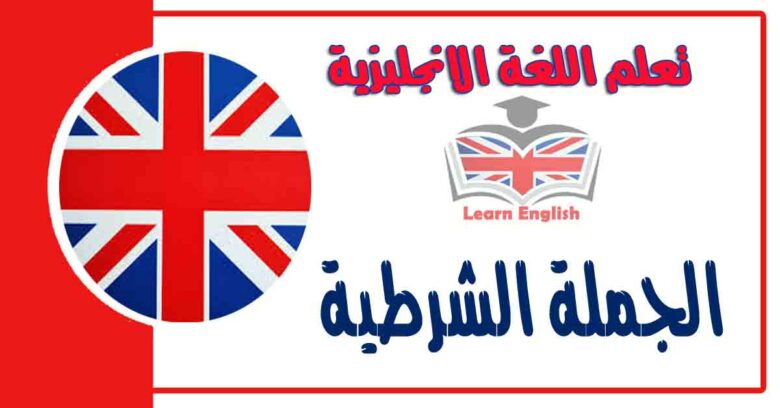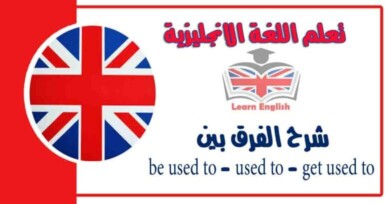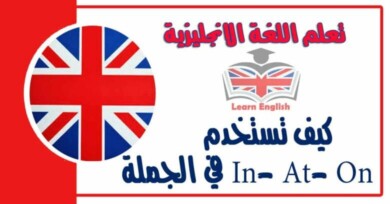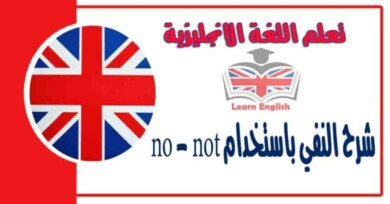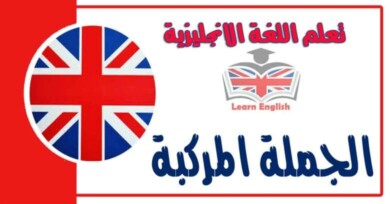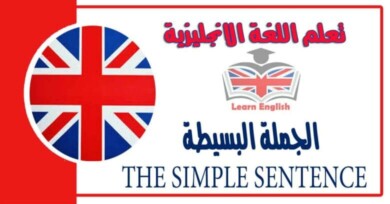جدول المحتويات
الجملة الشرطية في اللغة الانجليزية
الجملة الشرطية
- المصدر + will – مضارع بسيط If
- المصدر + would ماضي بسيط If
- + would have – ماضي تا م If
The zero conditional
مضارع بسيط – مضارع بسيط + If
تستخدم للتعبير عن مواقف حقيقية
- If you heat water, it turns into steam.
- they die If you don’t water plants
- The first conditional
المصدر + will – مضارع بسيط If
أمر – نهي – رجاء , مضارع بسيط
- If you meet Osama, give him this letter please
١- امكانيه احتمال حدوث شيء في المستقبل.
- If the sun shines, we will go out
٢- توقعات ( تنبؤات) أو وعود في المستقبل.
- If you will play will, you will win
- If you succeed, I’ll give you a
- present.
ملاحظات:
١- يمكن استخدام can, may بدلا من will
٢- يمكن تكوين سؤال علي الحالة الأولي ب what
?فعل الشرط (مضارع بسيط) +do + if + فاعل + What + will
- What will you do if you get a job
٣- يمكن استخدام should بدلا من if في الحالة الأولي .
- If he studies hard, he will succeed
- Should he study hard, he would succeed
- The second conditional
المصدر + would , ماضي بسيط + If
- If she studied, she would succeed
تستخدم الحالة الثانية في الحالات الاتيه:
١- للتعبير عن حدث غير محتمل أو مستحيل وقوعه في الوقت الحاضر
- If I didn’t feel so tired, I’d go out with you
- If I were rich, I would buy a car
٢- إعطاء النصيحة
- If I were you, I’d see a doctor
ملاحظات:
١- يمكن استخدام could, might بدلا من would
- If he were strong enough, he could carry the heavy bag
٢- تحول الجملة المثيته إلي منفية والعكس عند استخدام الحالة الثانية.
٣- يأتي بعد if ألجمله بعد as, because والجملة قبل , therefore so
- . that’s why
- He can go for a swim because it’s fine. (If
- He wouldn’t go for a swim if it weren’t fine
- I’m too busy therefore I can’t visit him today. (If
- If I weren’t too busy, I’d visit him today
٤- يمكن استخدام should بدلا من if في الحالة الثانية .
- If he studied, he’d succeed
- Should he study, he would succeed
٥- يمكن استخدام Had بدلا من if في الحالة الثانية .
- If I had enough money, I’d buy a new house
- Had I enough money, I’d buy a new house
وفي حالة السؤال
? فعل الشرط (ماضي بسيط + do + if + فاعل + What + would
- What you would do if your car was stolen
- I’d tell the police
- The third conditional
would have + p. p ماض تام + If
تستخدم الحالة الثالثة للتعبير عن مواقف مستحيلة الوقوع في الماضي.
- He didn’t get up early, so he didn’t catch the bus. (If
- If he had got up early, he would have caught the bus
- He was angry because we called him a bad name. (If
- If we hadn’t called him a bad name, he wouldn’t have been angry
ملاحظات:
١- تحول الجملة المثيته إلي منفية والعكس
٢- يأتي بعد if ألجمله بعد as, because والجملة قبل therefore , so
. that’s why
٣- يمكن استخدام Had بدلا من if في الحالة الثالثة .
- If she had studied, she would have succeeded
- Had she studied, she would have succeeded
وفي حالة السؤال
? فعل الشرط (ماضي تام) + have done + if + فاعل + What + would
- What you have done if you had practiced well
- I’d have won the medal
- Unless = if not
تستخدم unless بدلا من if في النفي ولها نفس القواعد .
- If he had worked hard, he would have passed the exam. (Unless
- Unless he had worked hard, he wouldn’t have passed the exam
- Unless he had worked hard, he would have failed the exam
يمكن استخدام incase of بدلا من if في الإثبات ويأتي بعدها اسم أو فعل + ing
- If you are strong, you will defeat your enemy
- Incase of being strong, you will defeat your enemy
- Incase of your strength, you will defeat your enemy
في النفي. if بدلا من without, but for يمكن استخدام
- If I don’t finish early, I won’t go home early. (Without
- Unless I finish early, I won’t go home early. (Without
- Without finishing early, I won’t go home early
لاحظ انه يمكن استخدام without ,but for بدلا من if والفعل بعدها منفي أو بدلا
من unless والفعل بعدها مثبت .
يمكن استخدام if it weren’t for بدلا من without في الحالة الثانية.
would اسم + Without
المصد ر +
would + اسم If it weren’t for
المصد ر +
- Without hard work, he wouldn’t pass the exam
- If it weren’t for hard work, he wouldn’t pass the exam
يمكن استخدام if it hadn’t been for بدلا من without في الحالة الثالثة.
اسم + Without
would have + p. p
اسم + If it hadn’t been for
would have + p. p
- Without hard work, he wouldn’t pass the exam
- If it hadn’t been for hard work, he wouldn’t have passed the exam
